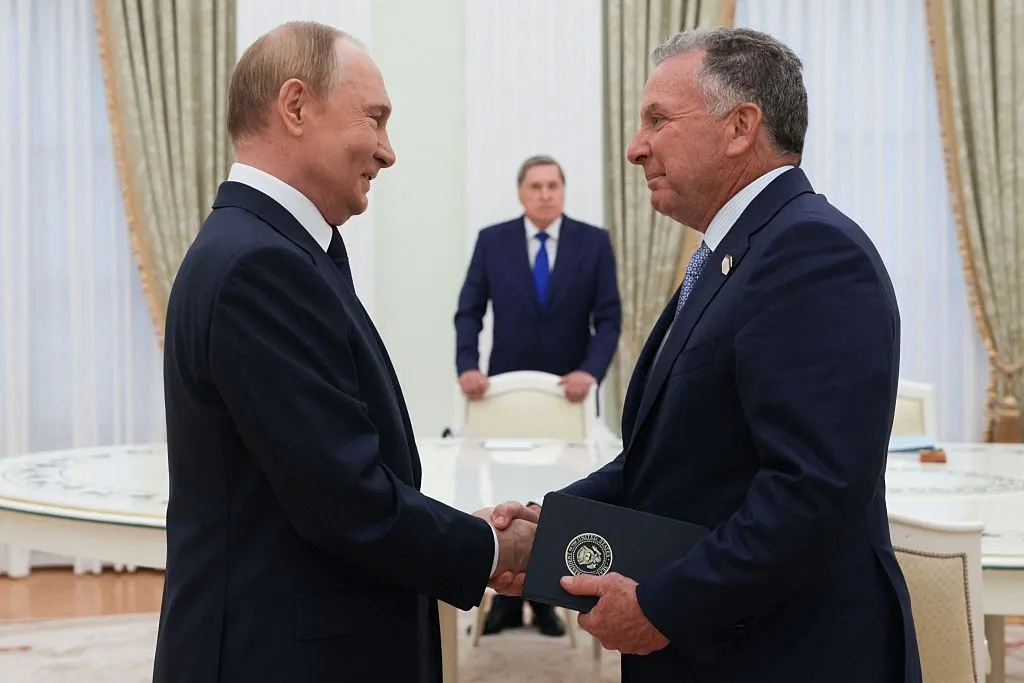Trump Defends Witkoff’s Russia-Ukraine Peace Negotiations
President Donald Trump has responded to concerns about his special envoy Steve Witkoff’s interactions with Russian officials regarding Ukraine peace talks, describing them as “standard negotiation” practices. Speaking to reporters aboard Air Force One, Trump dismissed worries about Witkoff privately coaching Kremlin advisers on how to approach peace proposals, explaining that such back-and-forth is simply part of the complex diplomatic process required to end the conflict.
The situation has raised eyebrows among U.S. allies and Ukrainian officials who were already apprehensive about back-channel diplomacy that might favor Russian interests. Bloomberg’s report that Witkoff was recorded advising senior Putin representatives on how to frame proposals to Trump has intensified these concerns. In one conversation reviewed by Bloomberg, Witkoff reportedly mentioned drafting a 20-point peace plan and suggested Russia echo that language in future communications with Trump. Despite these revelations, the White House maintains that Witkoff’s regular communication with both Moscow and Kyiv is precisely what his role requires, with a spokesperson confirming he speaks with officials from both countries “nearly every day” to advance peace negotiations.
When directly asked if he worried Witkoff might be “too pro-Russian,” Trump firmly rejected the notion, explaining his perspective on the conflict’s potential trajectory: “This war could go on for years, and Russia’s got a lot more people and a lot more soldiers. So I think if Ukraine can make a deal, it’s a good thing.” The president elaborated on his understanding of Witkoff’s diplomatic approach, framing it as standard dealmaking: “He’s got to sell Ukraine to Russia. That’s what a dealmaker does. You’ve got to say, ‘Look, they want this, you’ve got to convince them of this.’ You know, that’s a very standard form of negotiation… I would imagine he’s saying the same thing to Ukraine, because each party has to give and take.”
This isn’t Witkoff’s first significant diplomatic assignment under Trump. In October, the property developer played a crucial behind-the-scenes role in the ceasefire negotiations between Israel and Hamas. According to officials familiar with those talks, Witkoff helped craft the framework that ultimately led to a pause in hostilities, working with regional intermediaries and American diplomats to translate Trump’s demands into acceptable terms for both parties. Trump publicly acknowledged Witkoff’s contributions during his address to Israel’s parliament following the Gaza ceasefire, thanking him extensively for his efforts in bringing the parties to agreement.
The diplomatic tensions surrounding Witkoff’s approach have prompted responses from various stakeholders. White House spokesman Steven Cheung defended the envoy’s actions, telling Newsweek: “This story proves one thing: Special Envoy Witkoff talks to officials in both Russia and Ukraine nearly every day to achieve peace, which is exactly what President Trump appointed him to do.” Meanwhile, Ukrainian President Volodymyr Zelensky expressed his perspective on what genuine peace efforts should entail: “If there are negotiations, if there is constructive dialogue, if we are truly ending the war, then there should be no missiles, no massive strikes on Ukraine, on our people. And this can really be achieved by those who are truly strong in the world, and much depends on America. Russia started the war – Russia must end the war, and we are ensuring the necessary circumstances through dialogue with our partners.”
Looking ahead, Trump has indicated that his Ukraine peace plan has now been “fine-tuned,” and he’s taking next steps by sending Witkoff to meet with Russian President Vladimir Putin while U.S. Army Secretary Dan Driscoll engages with Ukrainian officials. The president expressed hope for personal meetings with both sides, but only when a final agreement appears within reach. This approach reflects Trump’s dealmaker mentality, treating international conflict resolution like a complex business negotiation where all parties must ultimately compromise to reach a workable solution. Whether this approach will succeed in bringing peace to Ukraine remains to be seen, but it clearly demonstrates Trump’s preference for personalized, deal-focused diplomacy over traditional State Department channels.


